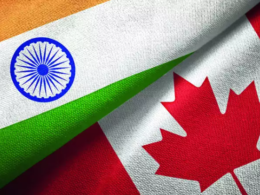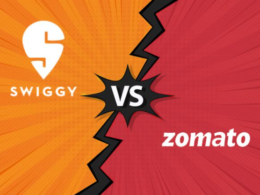The global stock market wears a bearish cloak as tensions spilling over in the Middle East further trickle down into several Asian economies. This region’s lifeline, oil reserves, are threatened by disruptions in supply chains and a push up in the production costs of various sectors such as steel, automotive, and FMCG. So, in this blog, I’m taking the liberty to outline strategies by which one might capitalize on these uncertain times through diversification, information, and managing risk. Let’s meander through the uncertainties of today’s geopolitics and empower your financial decisions to protect your investment portfolios.
Current Situation in the Middle East
The ongoing war in the Middle East has invoked a bearish trend in stock markets worldwide, though this attack primarily affects the Asiatic countries. As it acts as an important middle link between the Western and the Eastern countries, the slight hiccups here could bring about some critical economic losses. This entire region is known for its large reserves of oil, and this commodity stands as the corner stone to any type of manufacture or transportation sector.
Effect of Oil Supply Shocks
It is not something to be traded, but lifeblood of modern economies. Supply chain breaches due to recent tensions will see higher production costs for many industries. For example:
Steel Production: Energy price rises make the producers pay extra dollars.
Automobile industry: The ever-escalating cost of raw material and fuel has clouded car production.
Transportation: Fuel price hikes simply mean increased transportation and shipping costs.
FMCG: The sector is even more sensitive in this regard since it also bases the selling business on stable supply chains and predictable pricing.
Most visibly, though, the FMCG segment is vulnerable, in that it consumes both oil and petrochemicals. As tensions escalate, countries like Iran-a primary source of ethylene for India are unable to export and thus pull-on supply chains and raise their costs.
What People Can Do
After such events, individuals should undertake some proactive measures that protect their portfolios. A few of them are listed below:
Diversification
The diversification of investment can reduce the political tension risks. Thus, the investment diversified as a part in:
Precious metals: Gold and silver will often be a refuge when the future is indeterminate.
There is stability on government bonds in that stormy market.
International equities: Investing outside the hit regions can help in drastically reducing exposure to regional risks.
Keep informed
Keeping on top of world events and market trends is essential. For this reason alone, track the reputable financial news sources and economic reports to know how geopolitical tensions would affect your investments.
Risk Management
Implementing risk management strategies can help protect your portfolio. Consider setting stop-loss orders or rebalancing your portfolio periodically to align with your risk tolerance.
Consult Financial Consultants
Working with financial planners may give insights that suit the individual’s financial situation. They can help guide through complex market dynamics and adjust investment strategies based on the same.
Conclusion
As tensions escalate in the Middle East, the implications are profound for global markets. To the extent that the countries of all other continents are interlinked with each other, a shock to any one region has spillover effects elsewhere. Diversification of investments, staying informed, effective risk management, and consulting professionals would better equip everyone to protect their portfolios from the uncertainties ahead.
Both are a threat and an opportunity for strategic decisions about investment. An active approach would permit them to swim through the turbulence of uncertainty, ensuring safe and secure finances for tomorrow.
Thanks for reading! Keep exploring alloftop.com for the latest in tech, science, business, lifestyle, and beyond. Stay informed with us, and always be ahead of the curve!










